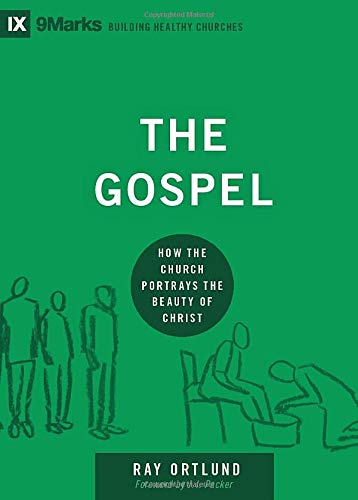Quotes about Unity
Few things are sapping the strength of the church of Jesus Christ more than the unreconciled state of so many believers. So many have matters deeply imbedded in their craws, like iron wedges forced between themselves and other Christians. They can’t walk together because they do not agree. When they should be marching side by side through this world taking men captive for Jesus Christ, they are acting instead like an army that has been routed and scattered and whose troops in their confusion have begun fighting among themselves. Nothing is sapping the church of Christ of her strength so much as these unresolved problems, these loose ends among believing Christians that have never been tied up. There is no excuse for this sad condition, for the Bible does not allow for loose ends. God wants no loose ends.
The differences among Christians are nothing in comparison of the differences among heathens.
A Puritan Golden Treasury, compiled by I.D.E. Thomas, by permission of Banner of Truth, Carlisle, PA. 2000, p. 63.
Ah, were their souls fully assured that God had loved them freely, and received them graciously, and justified them perfectly, and pardoned them absolutely, and would glorify them everlastingly, they could not but love where God loves, and own where God owns, and embrace where God embraces, and be one with every one that is one with Jesus.
A Puritan Golden Treasury, compiled by I.D.E. Thomas, by permission of Banner of Truth, Carlisle, PA. 2000, p. 303.
Articles or rules for doctrine or practice in matters of religion to be imposed upon men, should be as few as may be; there is very great danger in the unnecessary multiplying them. This in all ages has caused division and exceeding disturbances in the churches of Christ.
A Puritan Golden Treasury, compiled by I.D.E. Thomas, by permission of Banner of Truth, Carlisle, PA. 2000, p. 303.
Paul’s vision of the body of Christ is of a unity which consists in diversity, that is, a unity which is not denied by diversity, but which would be denied by uniformity, a unity which depends on its diversity functioning as such – in a word, the unity of a body, the body of Christ.
Believers are never told to become one; we already are one and are expected to act like it.
Joni Eareckson Tada Spontaneous Compassion, Tabletalk, November, 2008, p. 68. Used by Permission.
If Christ is not ashamed to indwell them I will not be slow to embrace them.
What! At peace with the Father, and at war with His children? It cannot be.
A Puritan Golden Treasury, compiled by I.D.E. Thomas, by permission of Banner of Truth, Carlisle, PA. 2000, p. 80.
But God’s goal is not simply to have us stop looking down on other races. God wants unity, not just a ceasing of hostilities. He wants the very makeup of His church to preach the gospel: that despite our racial variants we are united under one ancestor, Adam; that we had one problem, sin; and that we have one hope, salvation in Christ. He wants us to demonstrate to the world that this unity in Christ is weightier than anything that might divide us. When the Holy Spirit confronted Peter’s racism, he didn’t just command him to quit looking down on other races. He commanded Peter to embrace Cornelius, to go in and eat with him. Peter did not go from “racist” to “non-racist”; he went from “racist” to “gracist.”
Sin is almost the only thing we have in common with everyone else, and so at the feet of Jesus where sin is cleansed is the only place where we can be one. Real oneness conjures up for us the picture of two or more sinners together at Calvary.
The Calvary Road, Christian Literature Crusade, 1950, p. 76. P.O. Box 1449, Fort Washington, PA 19034-8449. Used by Permission.
The idea that the unity of the church found expression in some kind of external organization or ecclesiastical structure finds no support in the New Testament. Furthermore, the idea of denominations would be abhorrent to [the Apostle] Paul. The nearest thing to denominations was the sects in Corinth that Paul heartily condemned (1 Cor. 1:12ff).
Churches, mission agencies, schools and other Christian organizations that have tried to maintain unity by not confronting Charismatic influence and thus allowing it to come in and never be dealt with ultimately will all have to sacrifice their non-Charismatic position or split the organization. It does not bring unity, it brings the exact opposite because inevitably, you have the haves, the Charismatics who feel they’ve reached a higher level, and the have-nots and you have pitted two theologies against each other. One gives in or it splits.
Believers all belong to the same Lord, and are thus one with each other. Therefore anything that denies our oneness with each other denies our oneness with Him.
Genuine unity of any sort must have a purpose. Trying to achieve unity for unity’s sake is an exercise in futility, because it must have the motivation and focus of a common cause and objective. The church’s only true unity is grounded in the faith of the gospel, which refers to the Christian faith.
Divisions in the church always breed atheism in the world.
In essential unity; in nonessentials liberty; in all this charity.
I have never yet known the Spirit of God to work where the Lord’s people were divided.
The gospel being what it is and always will be, “the message of reconciliation” (2 Corinthians 5:19), our churches should be the most reconciling, peaceable, relaxed, happy places in town. We are so open to enemies, so meek in the face of insults and injuries, so forgiving toward the undeserving — if we do make people angry, let this be the reason. We refuse to join in their selfish battles. We’re following a higher call. We are the peacemakers, the true sons of God (Matthew 5:9).
Unity is one entity with one body with one purpose (Tony Hart).
When the Gospel enables us to live in love, even though we may have nothing else in common save Christ, it is a testimony to its power to transform a group of sinful, self-centered people into a loving community united by a common relationship with Jesus Christ (Mark Dever and Paul Alexander).
Loving Each Other, taken from The Deliberate Church, © 2005, Crossway Books, a division of Good News Publishers, Wheaton Illinois 60187, p. 111, www.crosswaybooks.org.
The unity of the church is to be a reflection of the unity of the one God upon which the church is built. The ideal (unity) and the real (division) do not always match up in the life of the church. A biblical theology of unity reveals a richer and deeper understanding of unity than mere uniformity, but it also holds out the goal of visible unity towards which Christians should aspire. The model of church unity presented in Scripture is a unity-in-diversity which protects it on one side from an over-reliance on human hierarchies but also from too great of an emphasis upon human autonomy… [Unity is being] bound to God and to one another by the gospel (Richard Lints).
Look at Him – this amazing Jesus! He is helping Joseph make a yoke in that little carpenter’s shop at Nazareth. This is the One who, apart from His self-emptying, could far more easily make a solar system or a galaxy of systems. Look at Him again! Dressed like a slave, with towel and basin for His menial equipment, He is bathing the feet of some friends of His who, but for their quarrelsomeness, should have been washing His feet.… “He humbled himself!” “Don’t forget this,” cries Paul to these dear friends of his at Philippi. “Don’t forget this when the slightest impulse arises to become self-assertive and self-seeking, and so to break the bond of your fellowship with one another”(Paul Rees).
“Being of the same mind” is not intended to squash independent thinking by Christians or to prevent them from having different opinions on secondary matters, but to exhort them to be at one in their mental attitude and thus in the basic aim, direction, and orientation of their behavior (P.T. O’Brien).
I do verily believe that when God shall accomplish [unity], it will be the effect of love, and not the cause of love. It will proceed from love, before it brings forth love.
There is a different kind of unity enjoyed by the joining of diverse counterparts than is enjoyed by joining two things just alike. When we all sing the same melody line it is called unison, which means “one sound.” But when we unite diverse lines of soprano and alto and tenor and bass, we call it harmony; and everyone who has an ear to hear knows that something deeper in us is touched by great harmony than by mere unison.
Desiring God, 1996, p. 179-180, Used by Permission, www.desiringGod.org. Get this book!
Imagine a symphony where every instrument kept hitting exactly the same note in exactly the same way. You could describe it in one word – BORING! No, a beautiful symphony is not music in unison, but music in unity – notes that blend together to make something they couldn’t make separately. This is what God wants the body of Christ to be like, and it all begins with relationship.
It is not our job to “produce” unity. Unity is “of the Spirit” (Ephesians 4:3). Unity is automatic when the Spirit is in control of everyone’s lives. Our job is to “preserve” the unity of the Spirit – to do nothing to disrupt the unity He is producing… We must take care of our relationships and be quick to clean up our offenses. We must make right our wrongs so that the unity of the Spirit is not disrupted.
Unity without the gospel is a worthless unity; it is the very unity of hell
In John 13 the point was that, if an individual Christian does not show love toward other true Christians, the world has a right to judge that he is not a Christian. Here (in John 17:21) Jesus is stating something else which is much more cutting, much more profound: We cannot expect the world to believe the Father sent the Son, that Jesus’ claims are true, and that Christianity is true, unless the world sees some reality of the oneness of true Christians.
Why do we in the church oftentimes only see our superficial differences? Why can’t we see each other as we are, ultimately alike – redeemed by the blood, united with Christ, loved by God, adopted into the same family?
Based upon the teaching of the Bible and over twenty years of full-time pastoral ministry, I have to say that three sins are particularly deadly to the unity of the church: excessive complaining, gossip and false teaching. The church must personally avoid these and reprove those who exercise them in their desire to be “diligent to preserve the unity of the Spirit in the bond of peace” (Eph. 4:3).
Someone once said we are all brought to the same level at the foot of the cross. The cross pours contempt on our pride and screams to us that reconciliation with God was entirely the work of Jesus. The cross screams to us that God justifies all His children with the same infinite love. The cross screams to us that we are all adopted into the same spiritual family in the same way with the same privileges. The cross screams to us that the sins of disunity such as discord, hatred, bitterness, strife, divisiveness, malice, jealousy, envy, disgust, indifference, unforgiveness have all been shattered by the cross and are therefore unacceptable amongst God’s redeemed. The cross teaches us that the grace that saves us results in grace that transforms us to live more like Jesus Christ, the “Prince of Peace” Himself. And the cross teaches us to join Paul in his never-ending refrain of boasting only in the cross (Gal. 6:14). And with our eyes on the cross, we strike a deathblow to our pride which fuels our divisions.
Do we really understand grace? Do we really understand that all we have with God was not deserved, but an unmerited favor of God’s love and mercy toward His enemies fully at Christ’s expense on the cross? Can we love and accept those who might not deserve our love in the way that Christ chose to love and accept us? Do we allow ourselves to really be gripped with God’s grace so that we might though His heart and His power love others that are different than us just as He does? Do we understand how much God wants His family to be unified? Do we view people the same way He views people – not looking at the shallowness of externals, but rather looking at the heart? This attitude boasts in the cross!
The unity of the church is to be a reflection of the unity of the one God upon which the church is built. As God is perfectly unified within Himself and we are perfectly unified in Him and with each other in Christ, the church should model that oneness in all our actions. Church unity flows from the fact that we are bound to God and to one another by the Gospel.
Because we are in Christ, there are no longer any hostilities in us that will always exist between those in the world. Ephesians 2:14, “For He Himself is our peace, who made both groups into one and broke down the barrier of the dividing wall.” We don’t employ the trite, superficial and flawed tactics of the world. Many of them are now championed more than ever in our day. We understand that the blood of Christ has cleansed us from our sin and has adopted us into His family. Thus, we see others different from us as part of the family of God, forgiven as we have been forgiven. We accept each other because God has accepted all of us. Our unity is not what we look like, but rather who we are in Christ. “[Christ] Himself [made] the two into one new man, thus establishing peace, and might reconcile them both in one body to God through the cross, by it having put to death the enmity” (Eph. 2:15b-16).
If we as a church are not unified in Spirit-driven Gospel ministry, there is nothing strong enough to hold this flawed and diverse group of people together as one.
Sermon, Is Your Christian Life Really Christian? Philippians 1:7-11 – Part 1, September 4, 2022.
Being unified in a church means: We know the difference between enjoying our small group, but understanding that the church is one – not separated along the lines of many small groups. Between having personal priorities within the church, but not losing the one core overarching mission of the church. Between respecting politics, but not making the church political. Between having good friends, but not forming alliances in the church to the exclusion of others. Between having differing beliefs, but honoring the church’s doctrinal statement. Between having personal convictions, but not legalistically pressing them upon others. That’s how we stand together as one for the Gospel.
Only the Gospel can take people that are externally diverse and internally bent on serving themselves and living according to their sinful desires and make them value the lives of others and then to contribute to healthy relationships in a unified church. And when we act this way, there is a power of Gospel presence and a purpose of Gospel attractiveness.
What does it mean when we read of Christians needing to “all agree” (1 Cor. 1:10) and be “of the same mind” (Phil. 2:2)? On the lowest level, all of us have personal interests with no spiritual significance. I like to call these “preferences.” Your favorite ice cream flavor. Where you choose to vacation. What you think makes a person attractive. Unless you are an egotistical moron, you respect the phrase, “to each their own.” On the middle level are non-salvific spiritual conclusions on how to live your life. These are the issues where Christians must decide, but often (even within the same church) have different perspectives. I call these “convictions,” or we could say “non-essentials.” Watching movies. How to school your children. Women’s clothing. What to do with Halloween. In these things, we respect another’s freedom (or liberty) in Christ. Then at the top level are the essentials for salvation and church unity. The doctrine of justification by faith. Obeying the Bible. Sharing Christ with others. These are the essentials and it’s in these things and these things alone we have unity – total agreement.
Sermon, The Quintessential to Gospel Effectiveness, Philippians 2:1-4, October 30, 2022.
The union of believers is grounded in the mystical union of Christ and His Church. The Bible speaks of a two-way transaction that occurs when a person is regenerated. Every converted person becomes “in Christ” at the same time Christ enters into the believer. If I am in Christ and you are in Christ, and if He is in us, then we experience a profound unity in Christ.
Satan always hates Christian fellowship; it is his policy to keep Christians apart. Anything which can divide saints from one another he delights in. He attaches far more importance to godly intercourse than we do. Since union is strength, he does his best to promote separation.
As important as unity is, it is not our most important value. Jesus Christ taught that truth transcends unity as a priority. It is critical to recall that in Christ’s high priestly prayer, before He prayed that we would be one, He prayed that we would be set apart in the truth (Jn. 17:17). From God’s point of view, truth is not only more important than unity but it is in fact the basis for unity. The Bible does not know a unity that is just for unity’s sake. Authentic Christian unity is a unity forged in a common cause, a common conviction, a common interest. Biblical unity is forged in our mutual bondedness to the truth in Christ, “the way and the truth and the life” (Jn. 14:6). When we embrace the truth, we are free to embrace one another in the truth.
Be united with other Christians. A wall with loose bricks is not good. The bricks must be cemented together.
Quoted by Curtis C. Thomas, Practical Wisdom for Pastors, Crossway Books, 2001, p. 131. Used by Permission.
The more fractured we are, the greater we become spectacles to the world. The more we are united in love, the more the world sees Christ.
Practical Wisdom for Pastors, Crossway Books, 2001, p. 175. Used by Permission. Get this book!
Has it ever occurred to you that one hundred pianos all tuned to the same fork are automatically tuned to each other? They are of one accord by being tuned, not to each other, but to another standard to which each one must individually bow. So one hundred worshipers [meeting] together, each one looking away to Christ, are in heart nearer to each other than they could possibly be, were they to become ‘unity’ conscious and turn their eyes away from God to strive for closer fellowship. Social religion is perfected when private religion is purified.
When you destroy unity in the church you rip the heart out of the body of Christ.
There is but one God, and they that serve Him should be one. There is nothing that would render the true religion more lovely, or make more proselytes to it, than to see the professors of it tied together with the heart-strings of love.
A Puritan Golden Treasury, compiled by I.D.E. Thomas, by permission of Banner of Truth, Carlisle, PA. 2000, p. 304.
Unanimity in things necessary; liberty in things not necessary; in all things prudence and charity.
Quoted in: Who Will Be Saved? Edited by: House, Paul and Thornbury, Gregory. Crossway, 2000, p. 220.































